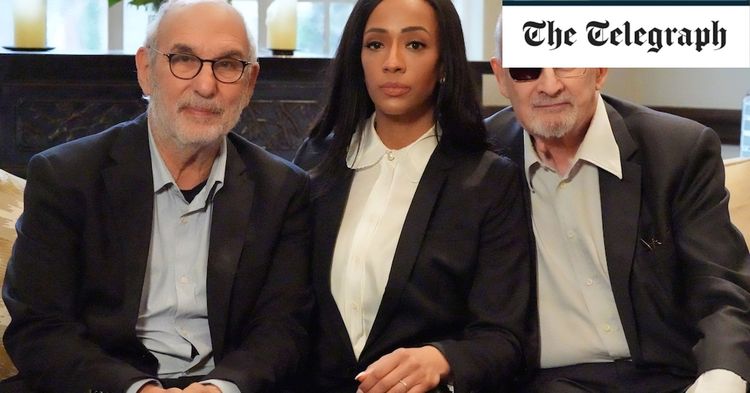Salman Rushdie: Through a Glass Darkly, BBC Two, review: testament to the author's staggering strength

Salman Rushdie has been living with a death sentence since 1989. Despite the seriousness of his situation, he has a good sense of humor when it comes to near-death experiences. Rushdie recently shared his experience of being put on a ventilator after being stabbed multiple times. He likened the sensation to having an armadillo's tail shoved down his throat, and it was just as uncomfortable when the tail was pulled out. Rushdie advised avoiding such a situation if possible, followed by a wry smile.
The writer penned a recollection of his experience in 2022 titled "Knife" and discussed it in an interview with the Telegraph. However, if you see him talk about it on the BBC Two program "Salman Rushdie: Through a Glass Darkly" with his long-time buddy Alan Yentob, you'll fully grasp how impressive his coping skills are. During the BBC interview, he simply shared the story of what occurred.
Yentob was speechless while Rushdie showed him where he was stabbed on his body. Rushdie also talked about his right eye which was damaged badly, leaving it looking like a soft boiled egg on his face. He shared the painful experience of getting his eye closed through stitches. The doctors told him there won't be any pain because of the anesthesia, but it turned out to be a lie.
The blog post included various materials such as videos of Rushdie when he was younger, news coverage of the fatwa that was placed on his book The Satanic Verses, and clips from movies, TV shows, and literature that he thought of while he was recovering. However, there was a strange part where Rushdie's fictitious dialogue with his attacker from his book Knife was acted out using a combination of basic AI and computer-generated images. Unfortunately, this addition did not contribute anything meaningful to our comprehension.
Rushdie feels that sharing his experience gives him a sense of power. During an interview, his conversation partner tries to end it, but Rushdie disagrees. He believes that since the conversation is happening in his mind, it only ends when he decides it does. Rushdie's spouse, Eliza, is also interviewed about the incident, which was obviously distressing. Rushdie sees it as a love story, but most importantly, he demonstrates his determination not to be intimidated. Rushdie has previously stated that terrorism should not intimidate us.



















































